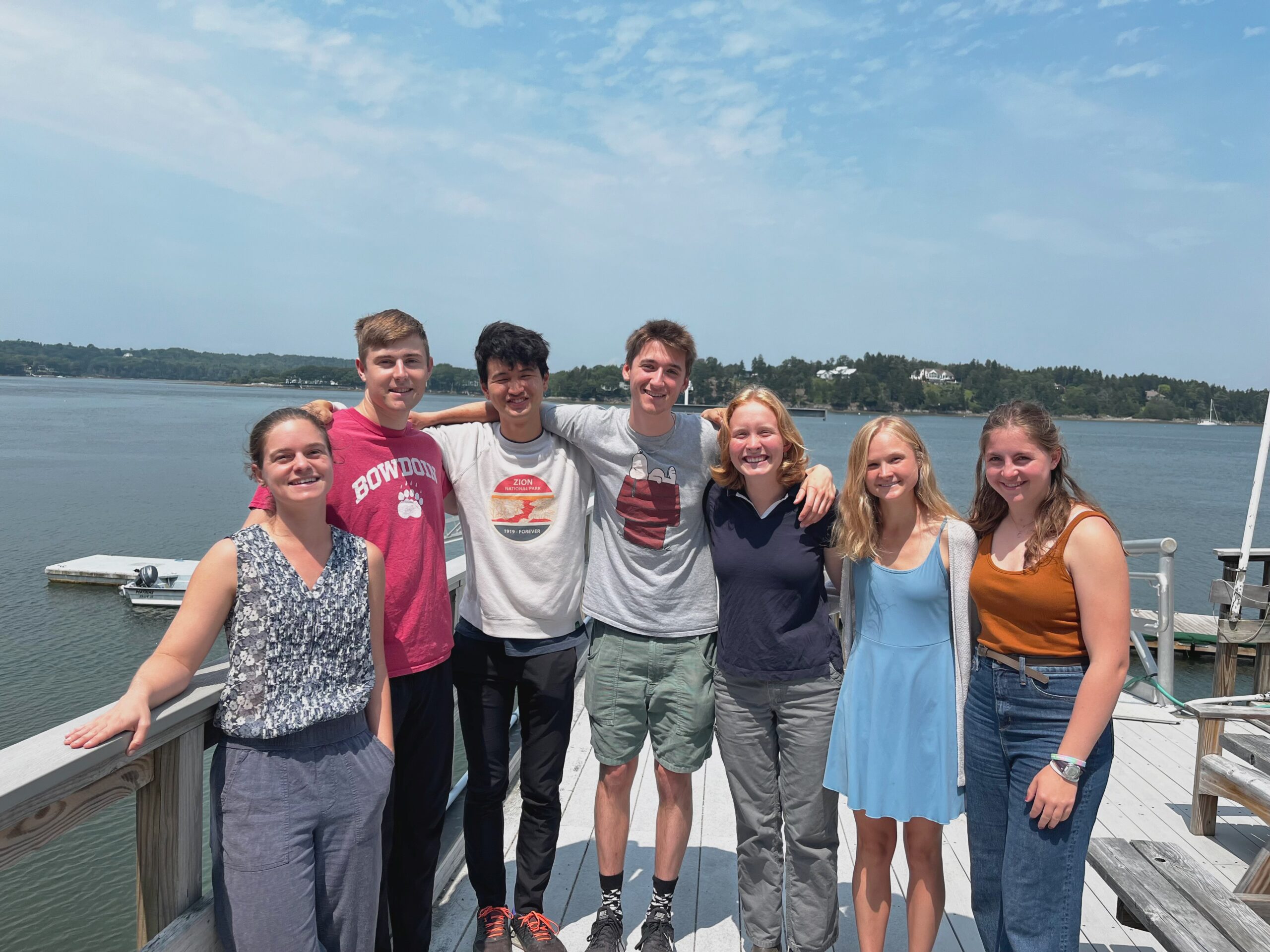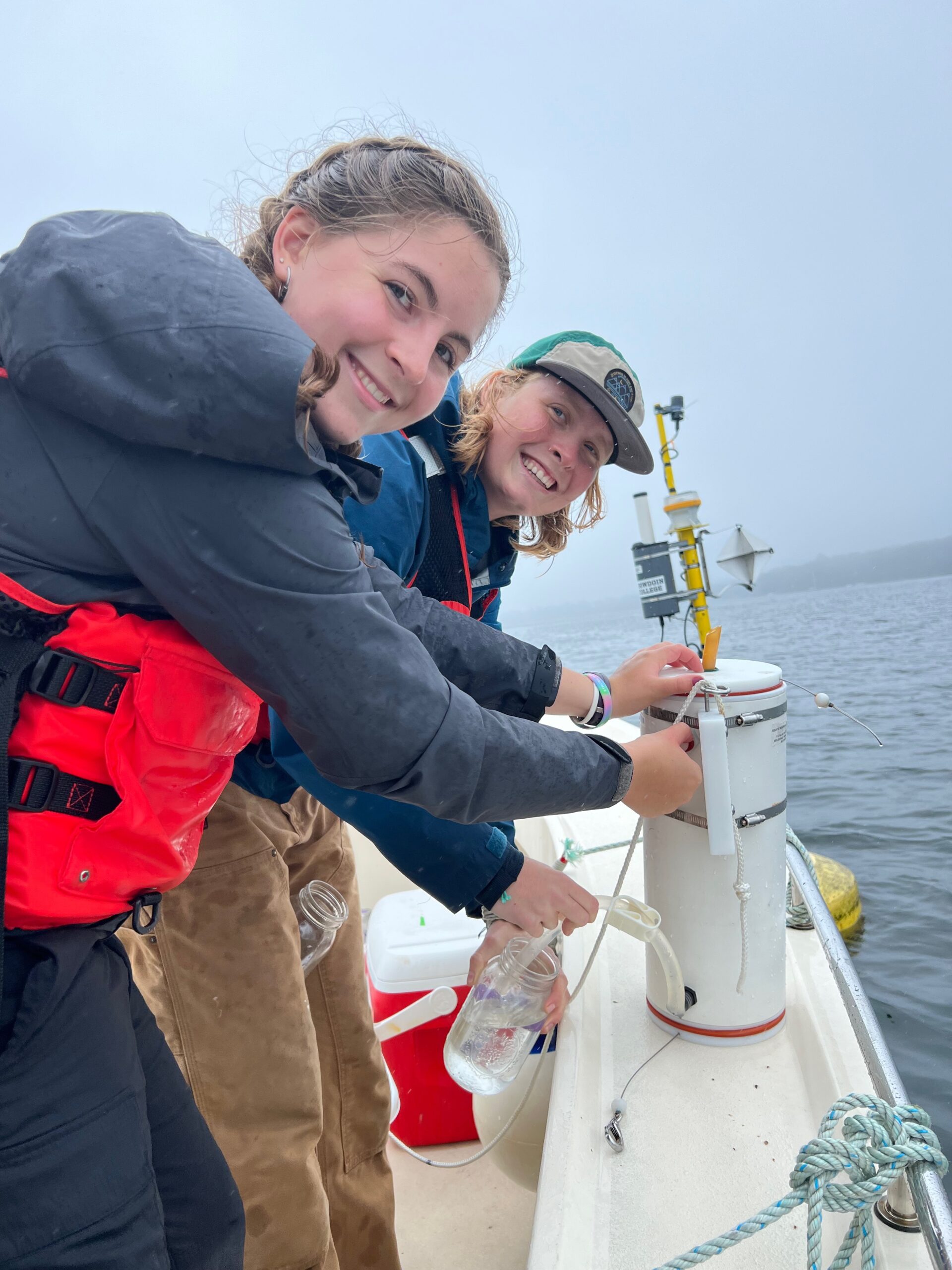Summer research at the Schiller Coastal Studies Center explores important ecological issues in the Harpswell Sound
September 1, 2023
 courtesy of Annika Bell
courtesy of Annika BellFrom students making bioplastic with the shells of invasive green crabs to mapping microplastic levels throughout the Harpswell Sound, the Schiller Coastal Studies Center was far from idle this summer.
Students took up jobs and research projects to further their understanding of the complex ecological systems in the Casco Bay region and humans’ vital role in maintaining this habitat.
Under the mentorship of Professor of Biology Katie DuBois, Annika Bell ’25 and Lucy Dutton ’25 conducted a research project exploring levels of microplastic pollution in the Harpswell Sound and how filter feeders consume these microplastics.
“Lucy had five points along the Harpswell Sound, and I chose three of those points to put oysters and mussels in, and we’d take her water samples and my oysters and mussels out at the same time to compare how much plastic they both generated,” Bell said.
As filter feeders, mussels and oysters purify the water they reside in. Microplastics often get trapped in their digestive tracts as a result. Oyster farming has become a popular restoration method because it helps promote cleaner ecosystems, but this also means that the oysters we consume could be contaminated with ocean pollutants like microplastics from the water.
“As the Gulf of Maine warms, aquaculture becomes more and more important of an issue,” Bell said. “That’s why tracking filter feeders across a sound is really interesting.”
Aquaculture is defined as the controlled cultivation of certain water-based organisms. Many of the projects at Schiller this summer were centered around its importance.
“It’s cool that they’re running more [research opportunities] at Schiller now. They’re all expanding and changing,” Dutton said.
Bell is continuing her research this semester as an independent study, while Dutton is heading abroad to Ecuador to work in an ecology and conservation program.
 courtesy of Annika Bell
courtesy of Annika BellFor Joe Tourtelotte, the primary caretaker of Schiller, this summer felt busier than most. He noted the expansion of Schiller over the past few years has been a result of the College and the greater community utilizing the site’s resources more.
“I’ve been out here eight years, and I’ve seen it change a lot. When I started out here, it was super underutilized by the campus,” Tourtelotte said. “The big change was the Schiller expansion, which was finished in 2020. It gave us many more resources to be able to do a lot more out here.”
Tori Bacall ’26 studied local adaptation between northern and southern populations of Ascophyllum Nodosom, also known as brown seaweed, to better understand how climate change will impact the range of this ecologically important species this summer.
As warming continues, species like brown seaweed are expected to go extinct. But after performing a thermal stress test, which puts the seaweed under various temperature conditions that they are not adjusted to, Bacall found that the seaweed could somewhat adapt to warmer temperatures.
“That basically tells us that this species is able to acclimate to warming temperatures pretty well,” Bacall said. “This could have implications for the resilience of the species to global warming.”
This was Bacall’s first time conducting research at Bowdoin, and she wishes to continue her work as a future summer project, independent study or even an honors project.
“It showed me that I really enjoy research, and I’m hoping to do it next summer as well, either at Bowdoin or another institution,” she said.
The opportunity for more students to take advantage of Schiller’s unique space this summer could set a precedent for research and stewardship in summers to come.
“I view the site almost like my home away from home, and I feel really invested in it,” Tourtelotte said. “Even with its challenges, I feel like my favorite part of the job is having this thing that is my own to take care of. It feels like I can make a big difference out here.”

Comments
Before submitting a comment, please review our comment policy. Some key points from the policy: